Affiliate links on Android Authority may earn us a commission. Learn more.
What is Google Password Manager and how to use it
Published onMay 29, 2023
Google has offered a password manager as part of Chrome since 2015. Since then, it has developed the feature to make it easier to use and more secure. Google Password Manager can remember any number of login credentials and auto-fill them in the appropriate boxes when you visit a password-protected website using the Chrome browser.
The security provided by Google’s encryption protocol and two-factor authentication (2FA) makes Password Manager a highly effective tool for keeping your passwords both secure and handy. When a feature is this useful, it’s good to know the details of its use. We will review how to use Google Password Manager below, so you can surf the web with peace of mind.
QUICK ANSWER
To use Google Password Manager, go to www.passwords.google.com using Chrome and sign into your Google account. In the Autofill section of the Settings menu, check the Offer to save passwords and Auto sign-in options. Now when you visit a password-protected website, Google will offer to record the login credentials and fill them in for you automatically on each subsequent visit.
JUMP TO KEY SECTIONS
Is Google Password Manager safe?
The short answer is yes, it is safe. When you allow Google to store login credentials, it encrypts your username and password using a key that is unique to the device you are using before sending the information to Google’s servers. So Google cannot be hacked for your passwords because the encryption key is not with Google, but only on your device. Google makes you log in each time you want to check your saved passwords.
Two-factor authentication is also available. And if you let Google generate strong passwords for you, that’s another strong layer of protection. And you don’t have to remember the long, complex string Google generates for you because Password Manager is doing that for you.
The remaining security threat is someone acquiring your Google password. If they do this, they will have access to all your other stored passwords via Password Manager — making sure two-factor authentication is on will make this more difficult. So while no security system is infallible, Google Password Manager uses a combination of the best online security measures currently available.
How to use Google Password Manager on your computer
Start by opening your Chrome browser and going to passwords.google.com. If you are not signed in to your Google account, you will be asked to sign in. If you do not have a Google account, check this link to learn how to start one.
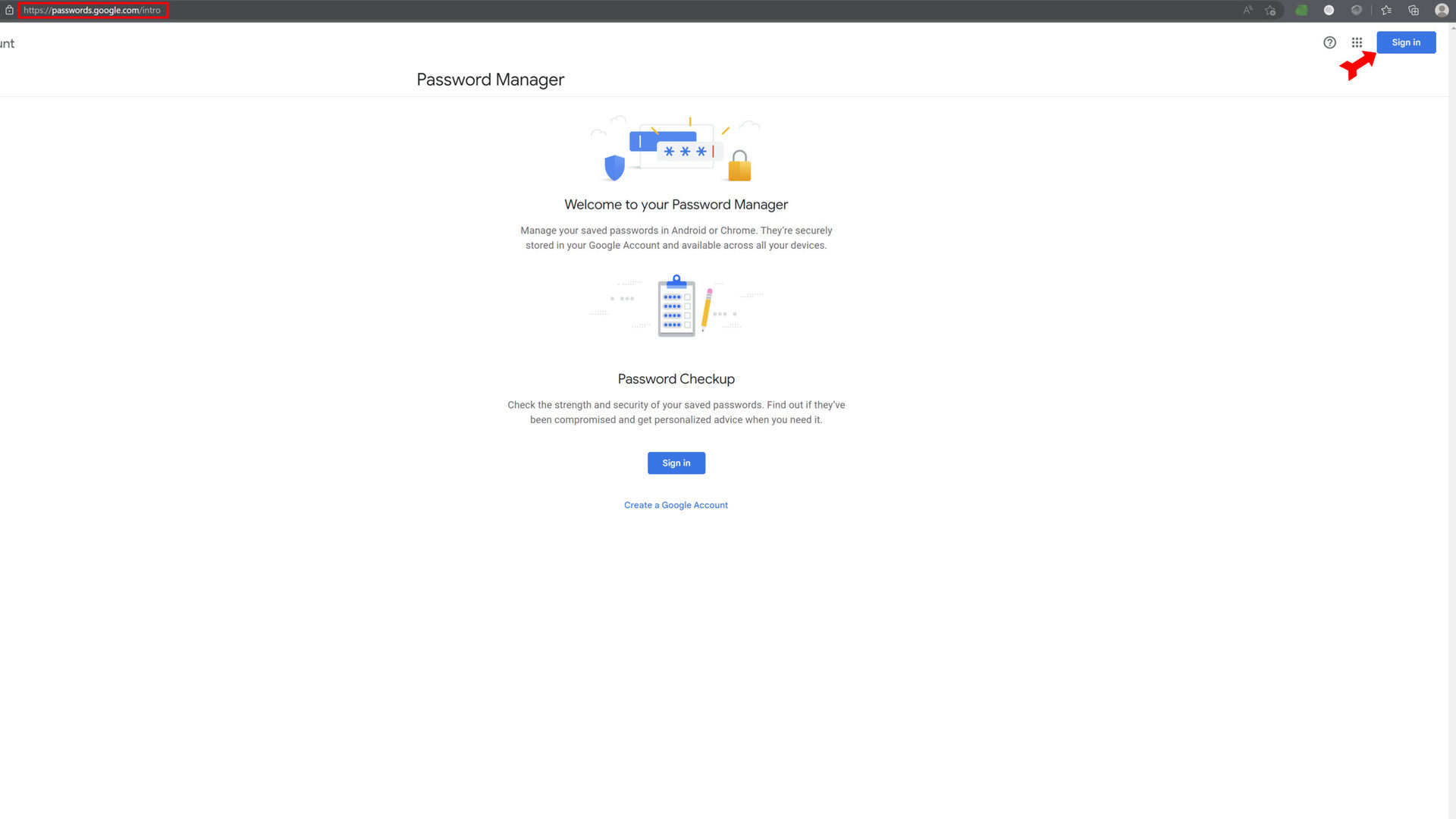
Once you sign in, you will see the list of any websites for which you already have passwords stored. You will also have the option to have Google check every password you have stored against lists of websites known to have been hacked. This feature is called Password Checkup. You can change the passwords for the affected sites right in Password Manager.
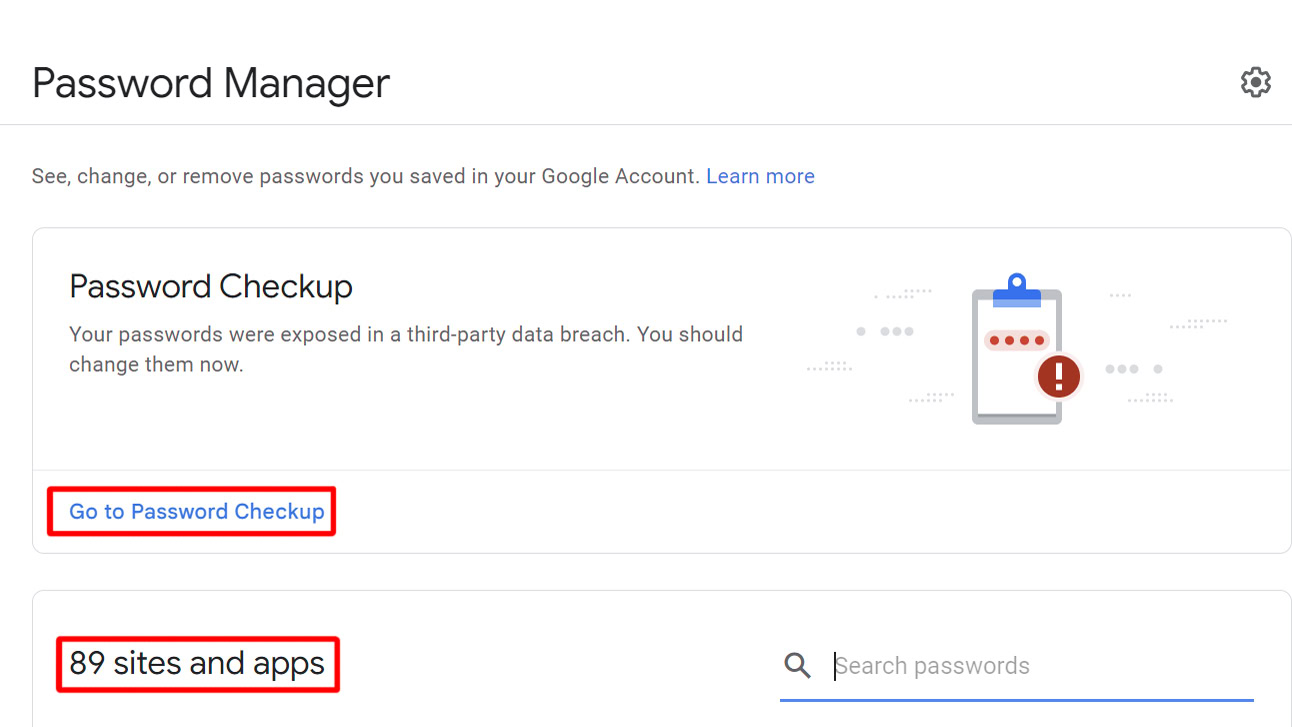
Adding a password to Google Password Manager automatically
In the upper right of the main page, you will see the familiar gear icon that indicates the Settings menu. Click on it.
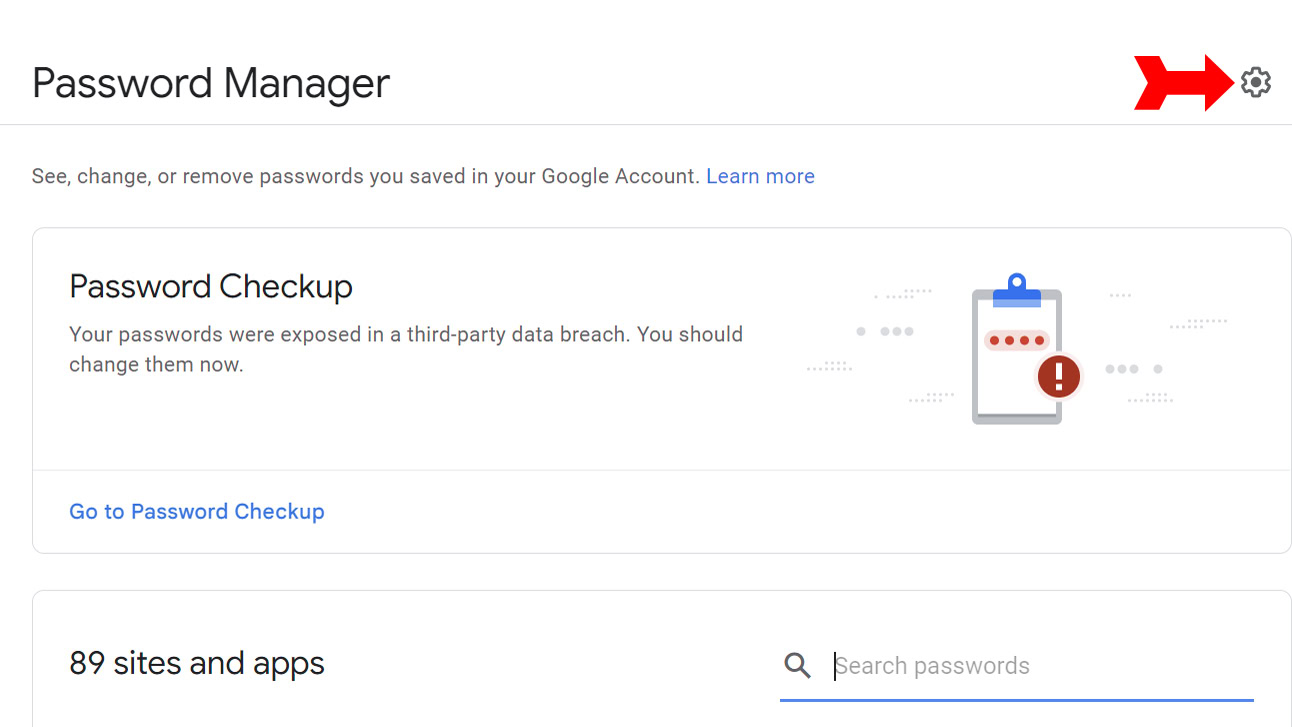
On the Settings page, the first option at the top is to set Google to offer to save passwords whenever you log into a website. Switch it on. Now when you log into a site, Google will ask if you would like the password saved. The next time you visit that site, your login credentials will pop up automatically when you click on the login window.
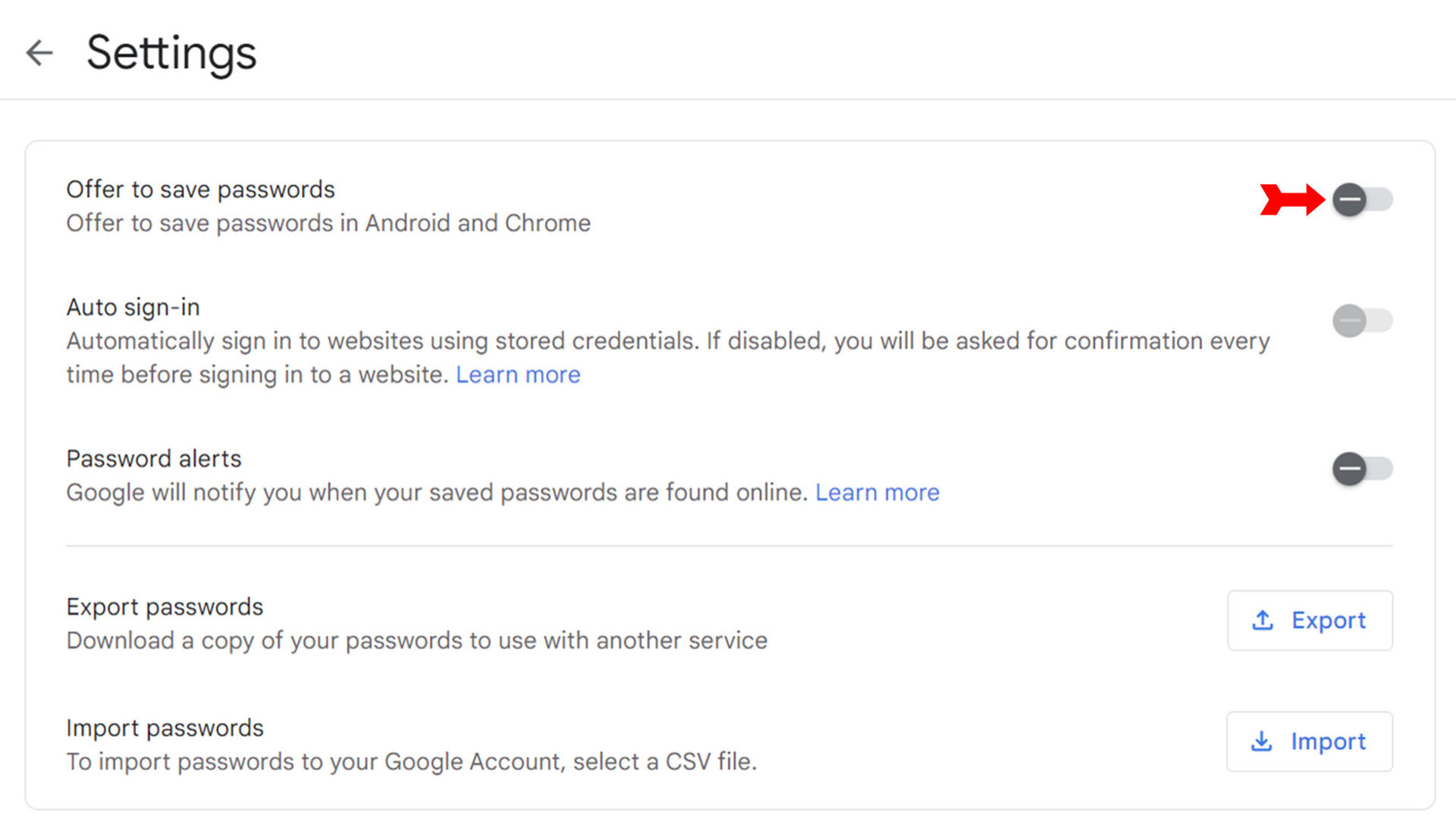
Adding a password to Google Password Manager manually
Open Chrome and click on the three-dot menu in the upper right.

In the Settings menu, click on Autofill from the menu on the left.

In the Autofill menu, click on Password Manager.
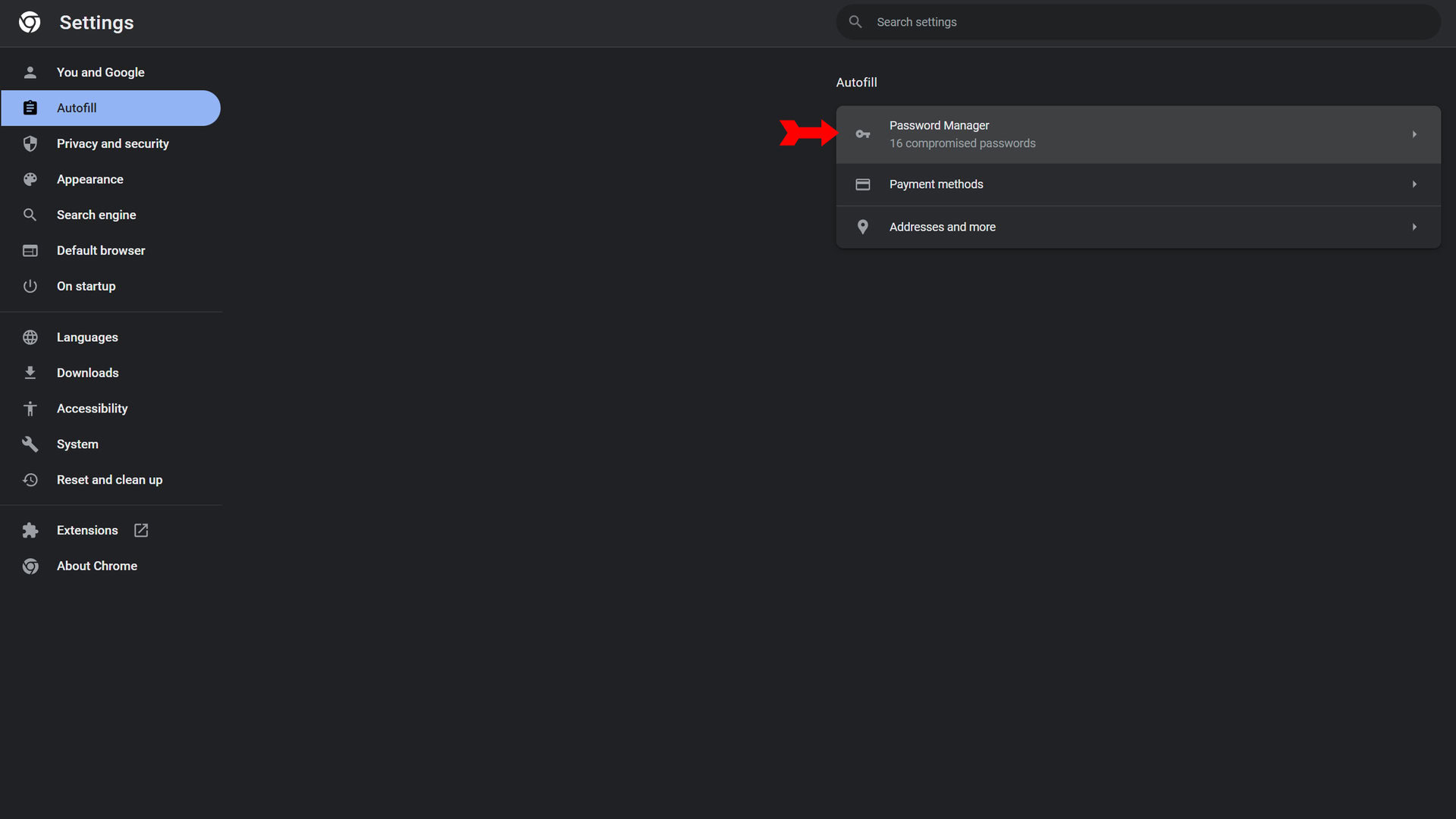
On the Password Manager page, you will see a button that says Add. Click on it.
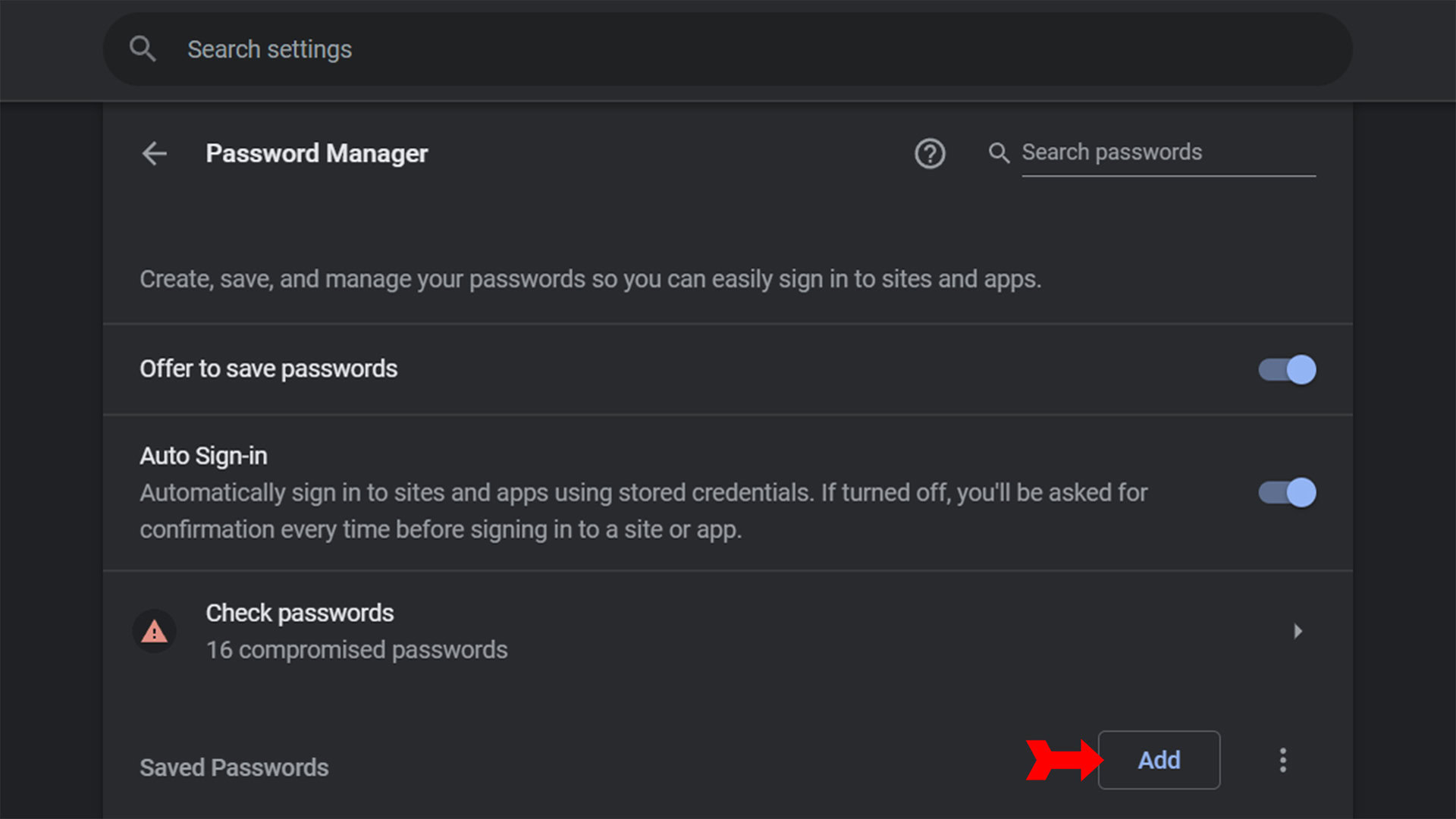
A dialogue box will pop up with spaces for a website, a username, and a password. Fill in the information and click on Save. The credentials for the site in question have been added to your Password Manager.
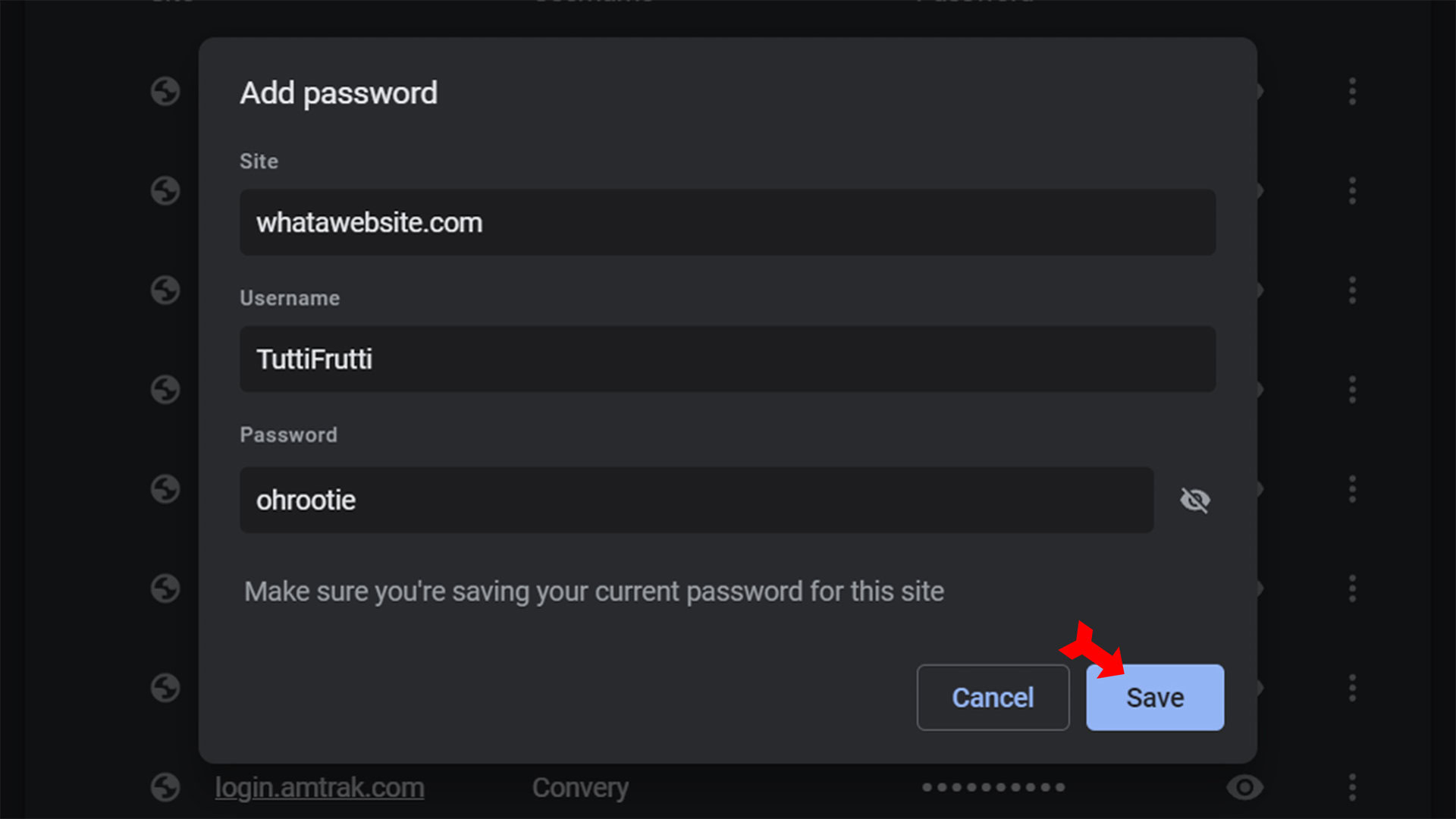
How to edit or delete passwords in Google Password Manager
On the Password Manager page, you will see a three-dot icon next to each password Google has saved for you. Find the website whose login information you want to change or delete and click on the three-dot menu next to it.
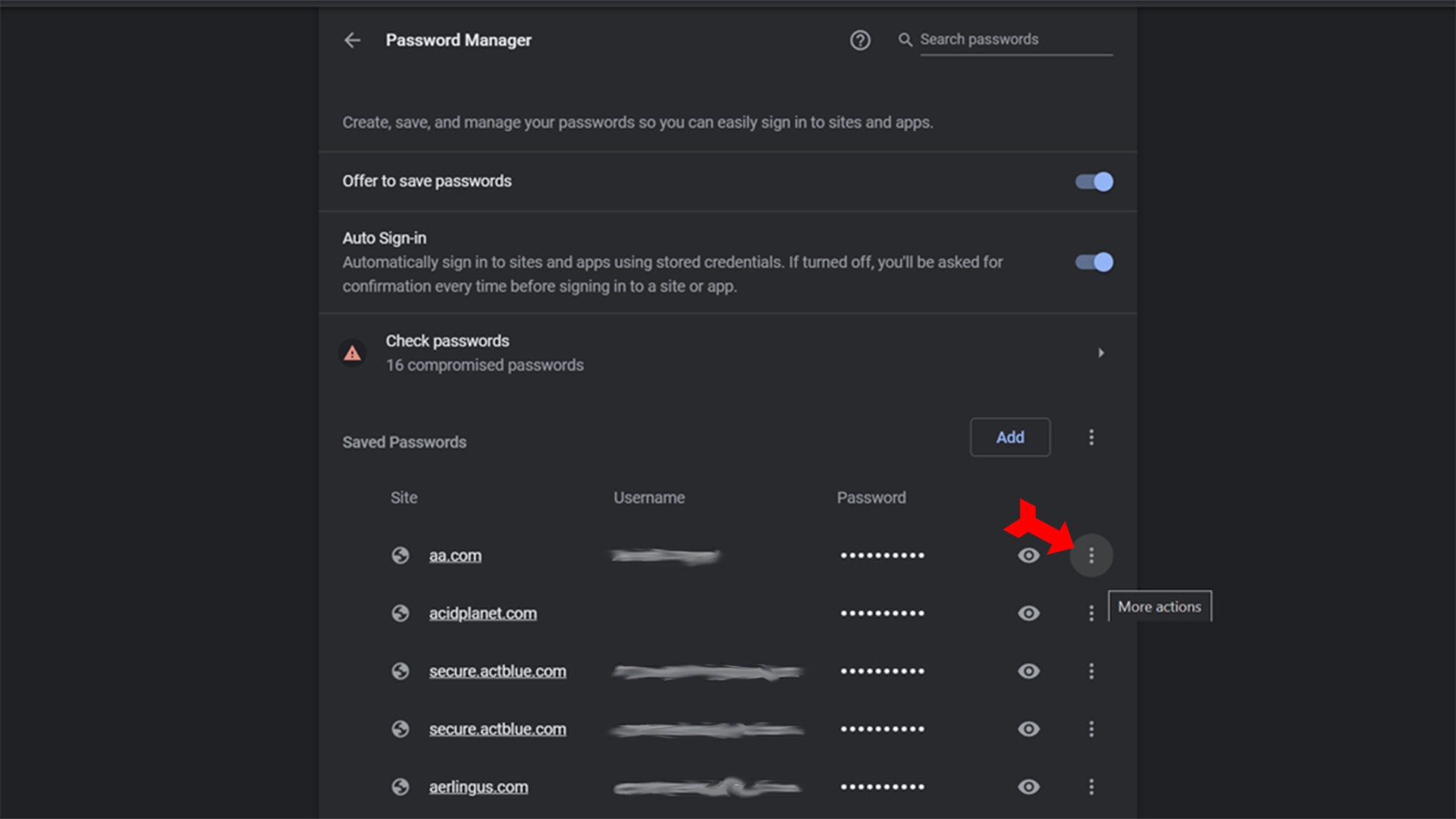
The three-dot icon will reveal menu choices to copy the selected password, edit it, or delete the credential from your list. The commands to copy or remove the password will bring up notifications in your system tray that the password has either been copied to your clipboard or deleted. Choosing to edit the password will bring up the dialogue box with spaces for the URL, username, and password. Just correct the information and click on Save.
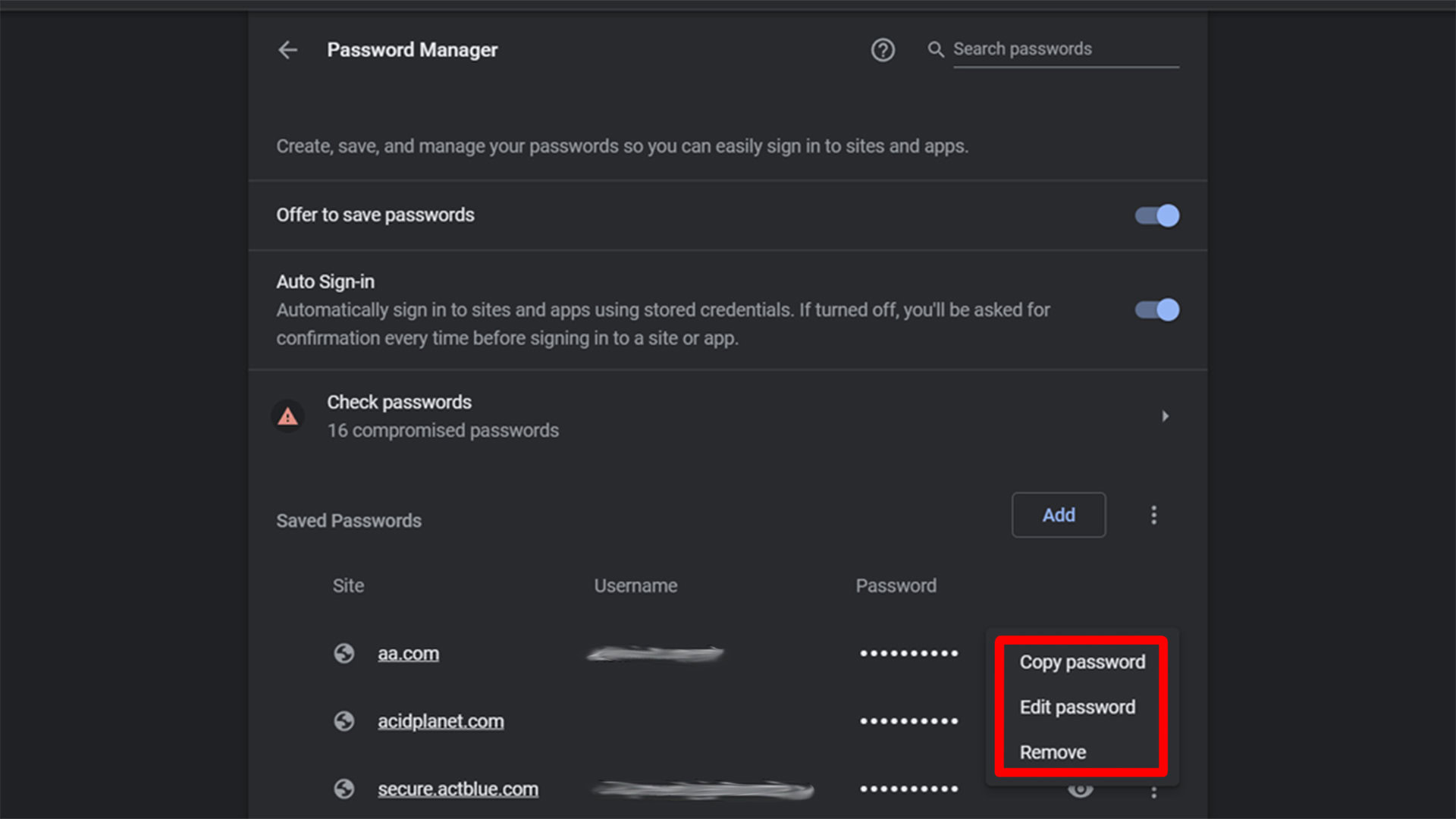
How to turn auto sign-in on or off
On the Password Manager page, the Auto Sign-in switch is near the top. If you leave this option off, you will be asked for confirmation at each website you have on your Password Manager list before the credentials are entered.
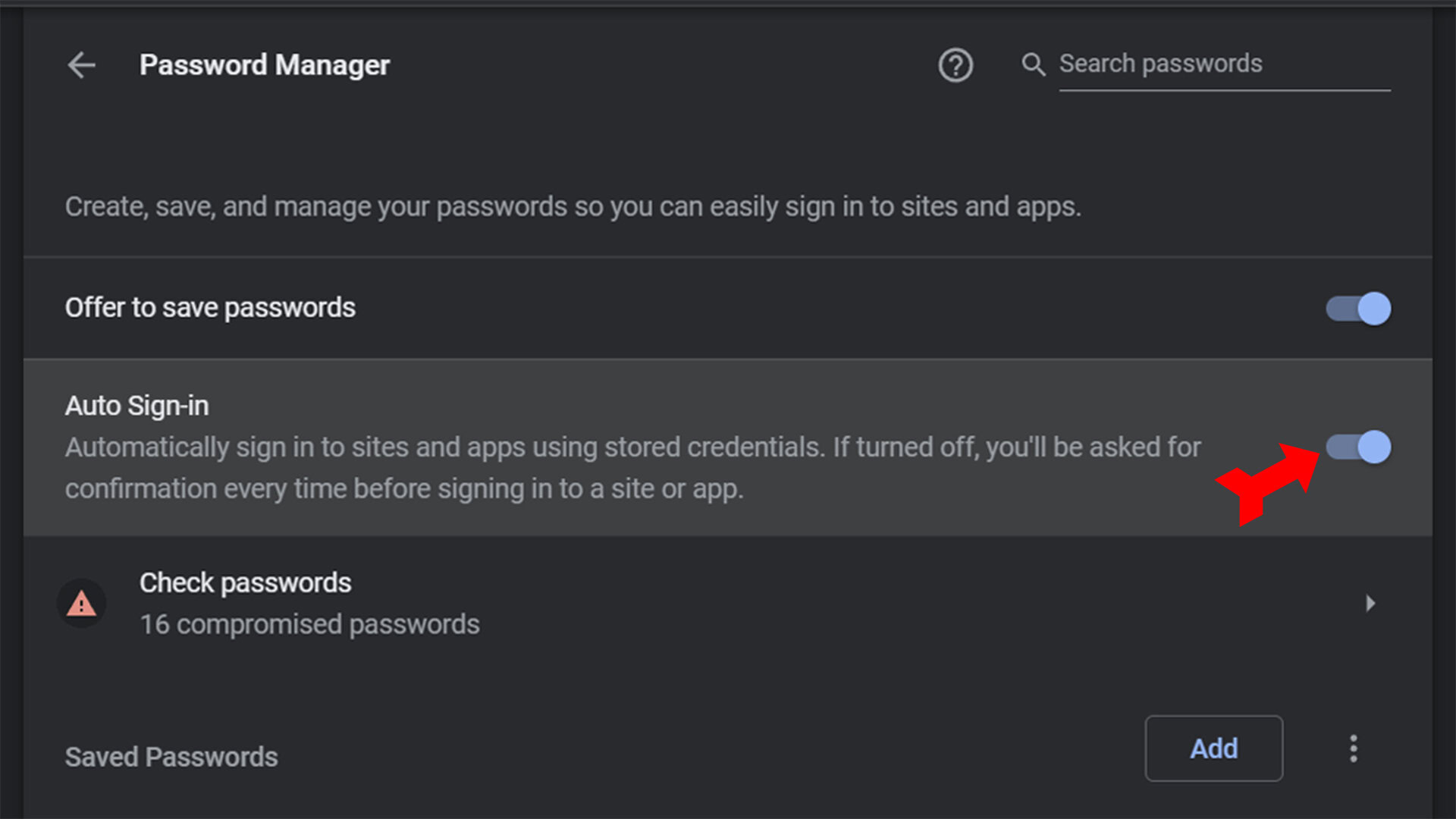
How to use Google Password Manager on your phone
The Password Manager works almost identically on your phone when compared to your computer. Some of the controls are in different places, as you would expect. Start by opening Chrome and tapping on the three-button icon in the top right.

Choose Settings from the drop-down menu.
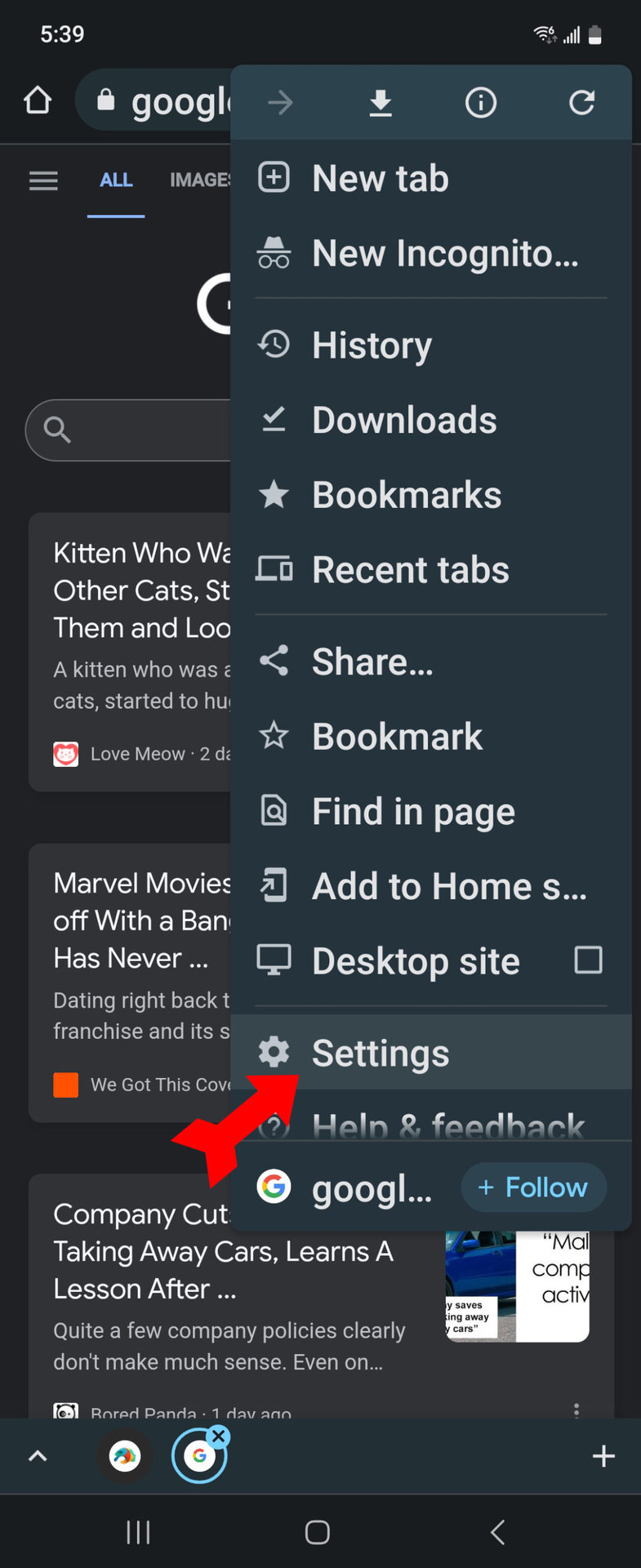
On the Settings page, select Password Manager. You will see the control screen for the Password Manager.
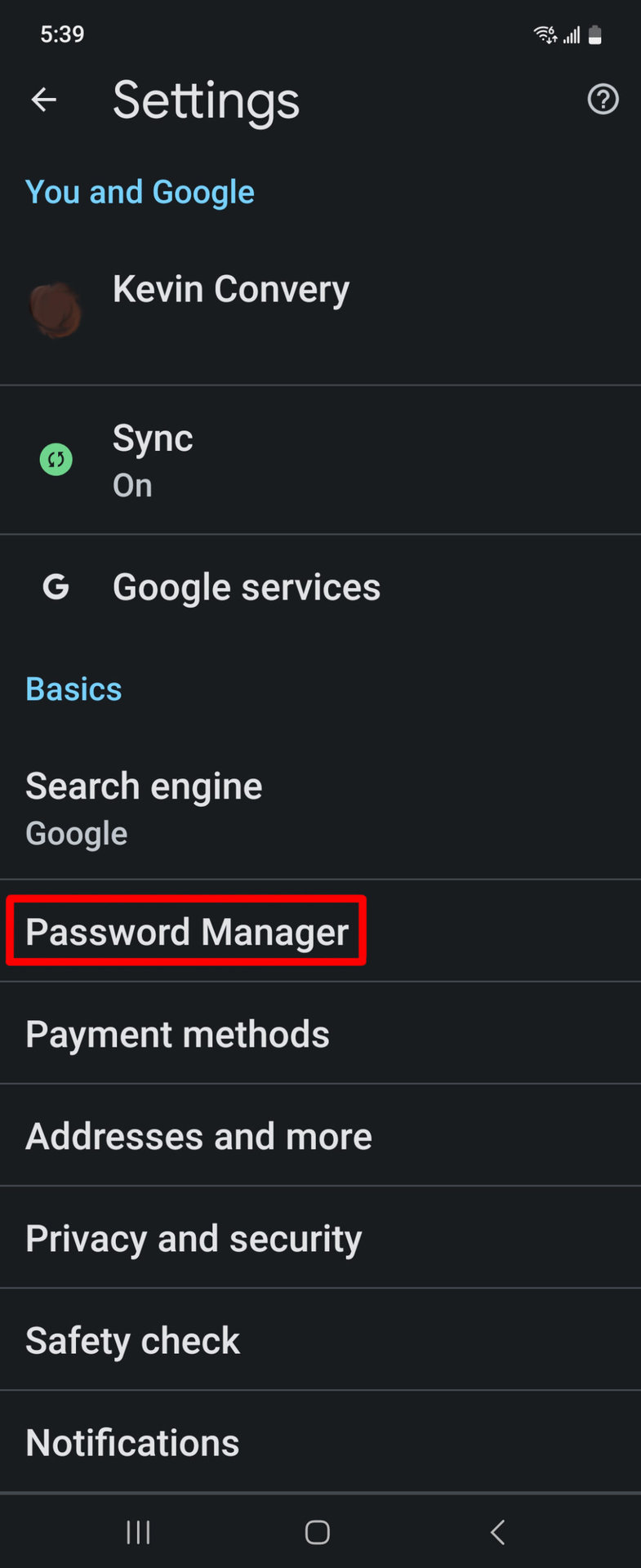
Adding a password to Google Password Manager automatically
From the Password Manager screen, click on the gear icon in the top right to access the Settings for Password Manager.
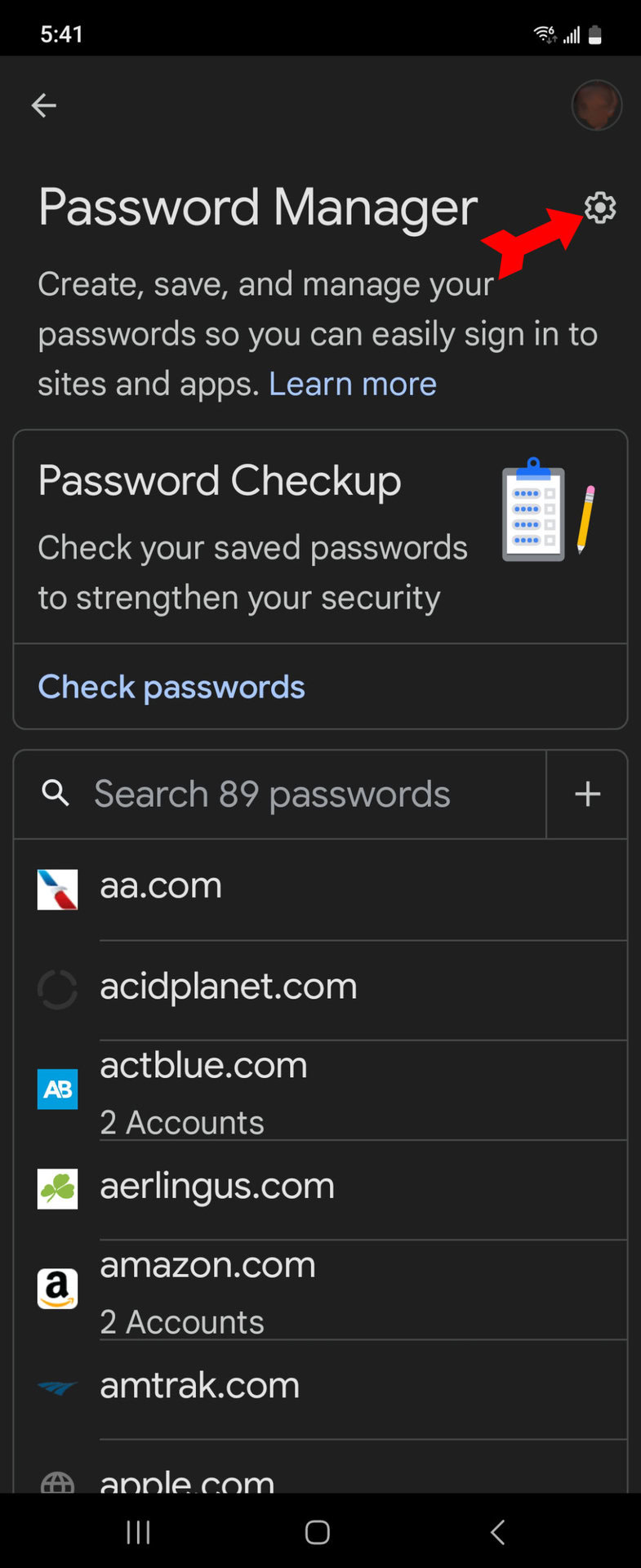
On the Settings page, switch on Offer to save passwords. The next time you visit a password-protected website, Google will offer to save the credentials you enter. On subsequent visits, your login information will appear automatically.
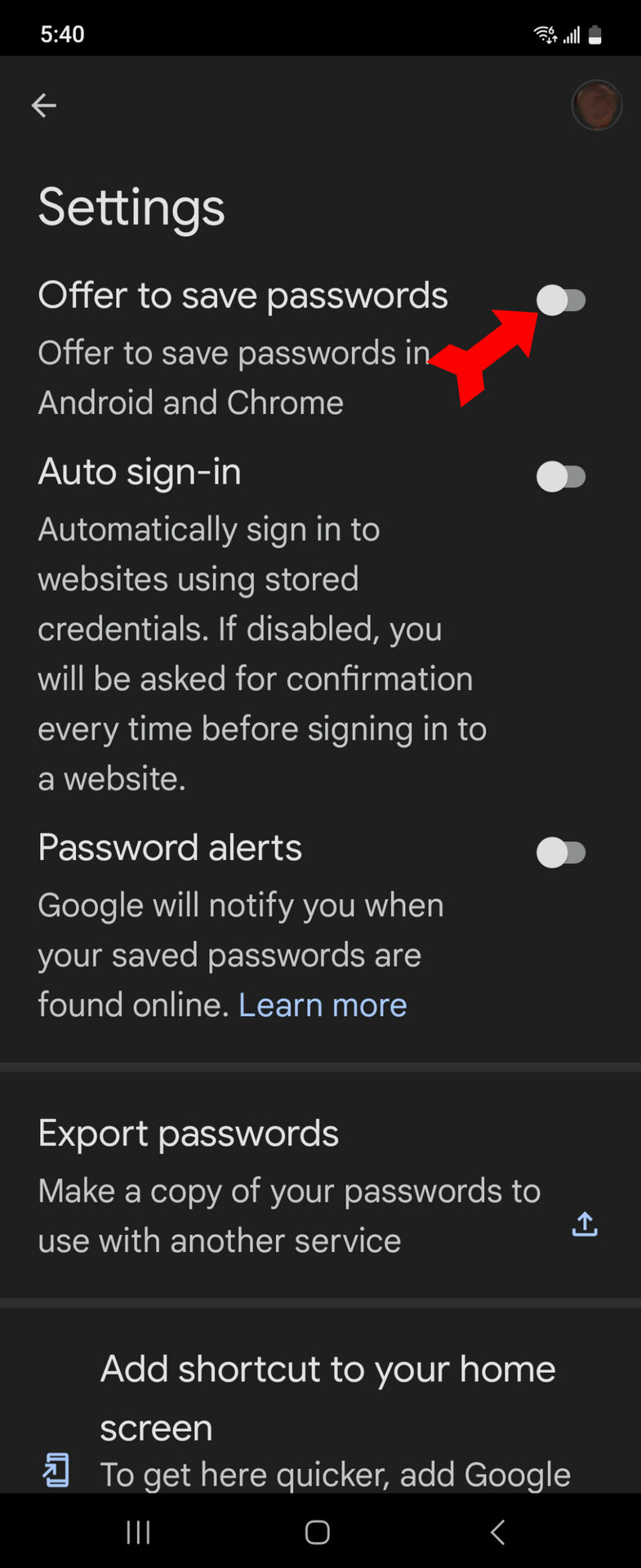
Adding a password to Google Password Manager manually
On the Password Manager page, tap on the plus sign on the right-hand side.
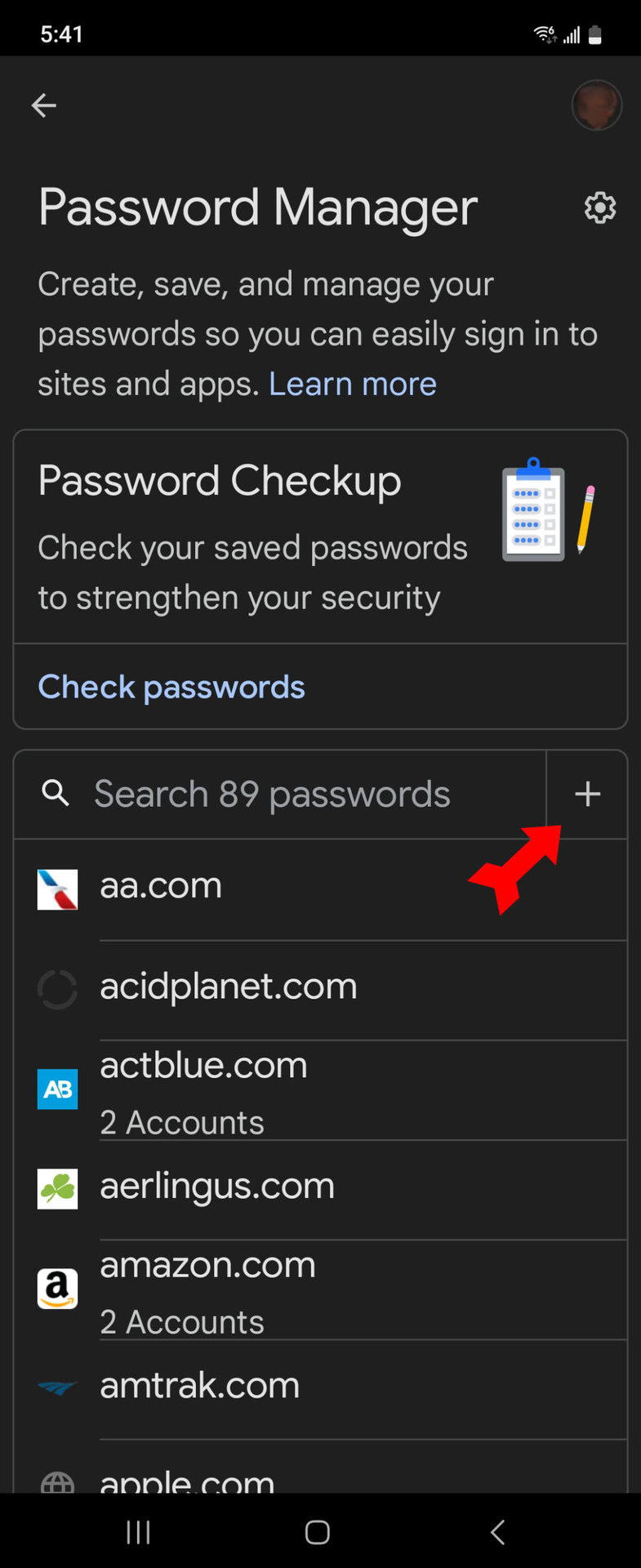
The Add password page will come up. Fill in the website you want to add credentials for, your username, and your password. Tap on Save.

How to edit or delete passwords in Google Password Manager
On the Password Manager page, scroll down through your list of saved passwords and tap on the one you want to change or delete.
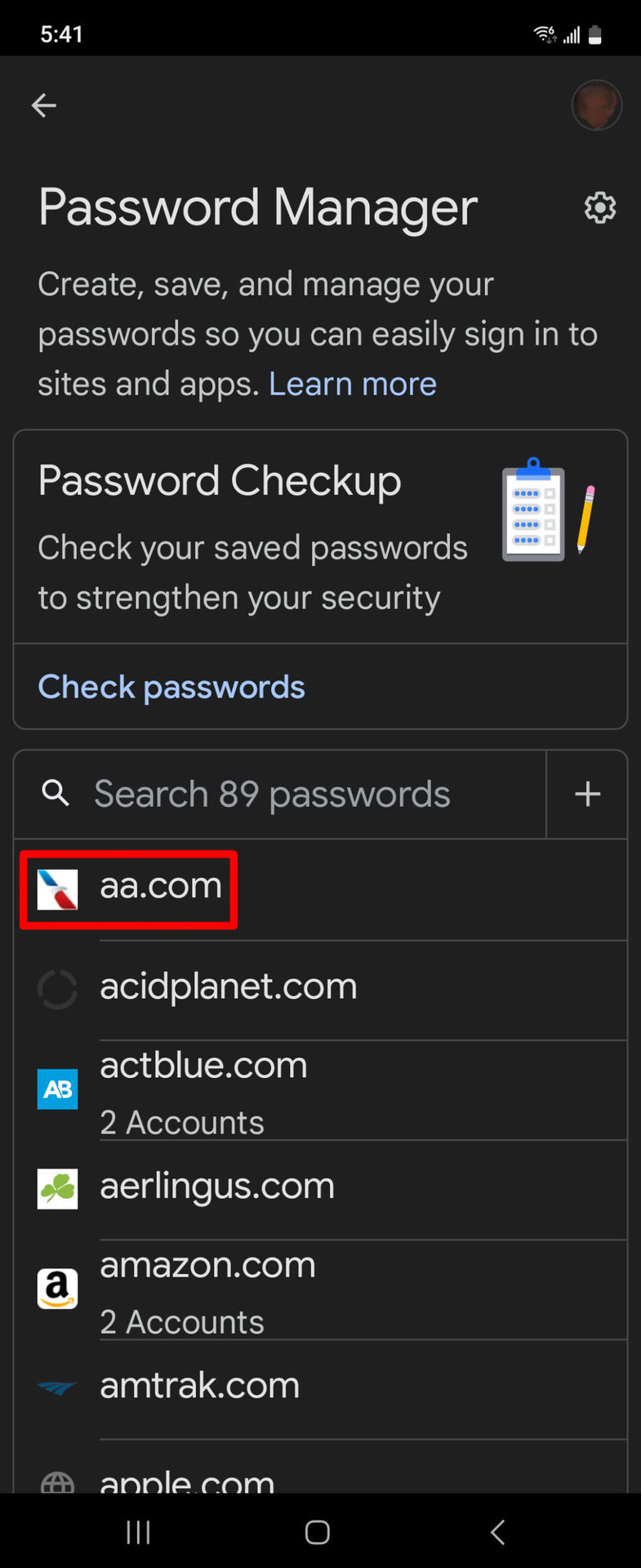
On the password’s page, change the username, password, or both, and tap on Edit. Or, to delete the password altogether, tap Delete.

How to turn auto sign-in on or off
On the Password Manager page, tap on the gear icon in the upper right to bring up the Settings menu. You’ll see the Auto Sign-in switch second from the top. Switch it on to have Google automatically fill in your login information. If you leave it off, you will have to confirm sign-in each time you visit a website.
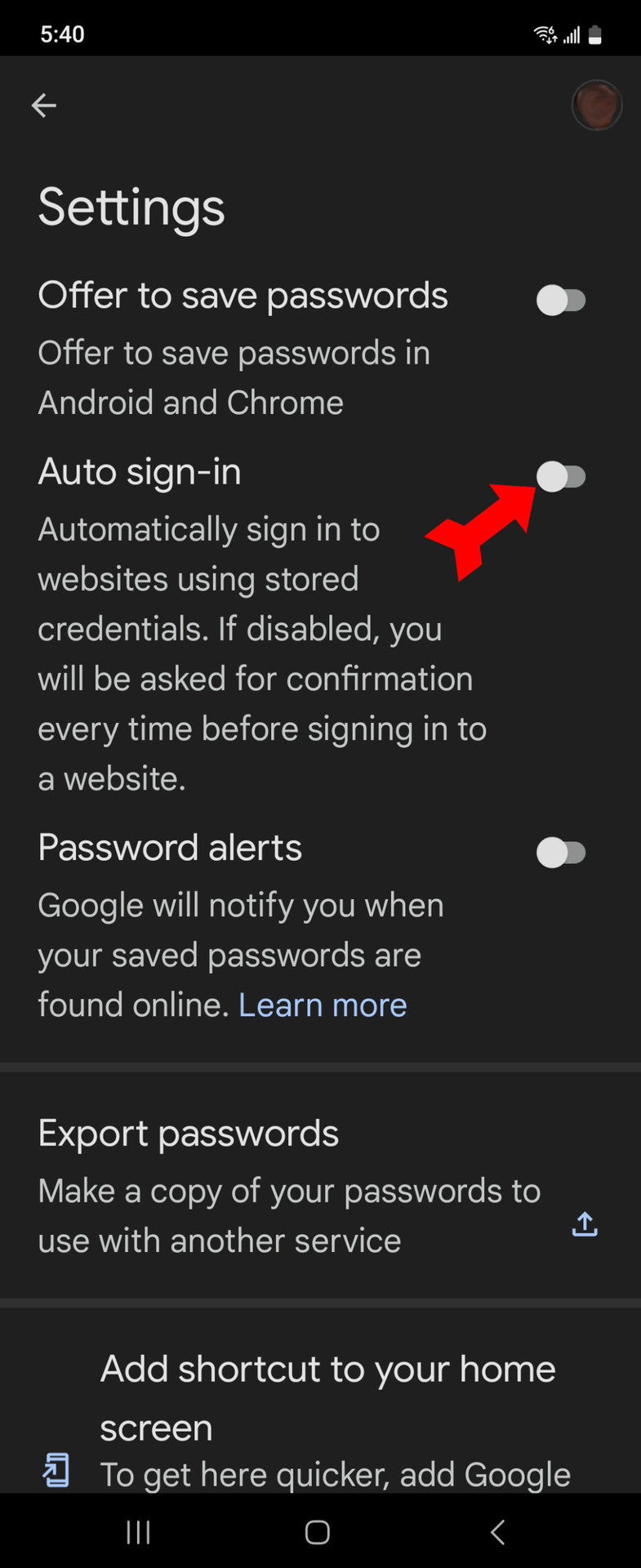
FAQs
There is no limit to the number of login credentials you can store in Google Password Manager.
There are password managers, especially paid ones, with more features, but Google built Password Manager into Chrome, the most popular browser on Earth, so it wins on convenience, ease of use, and price.
Password Checkup is a feature of Password Manager that searches online records of websites that have been hacked with a loss of user information. When a website for which you are saving a password in Password Manager appears to be compromised, you’ll be notified (if you choose to be). You can edit the exposed password right in Password Manager.